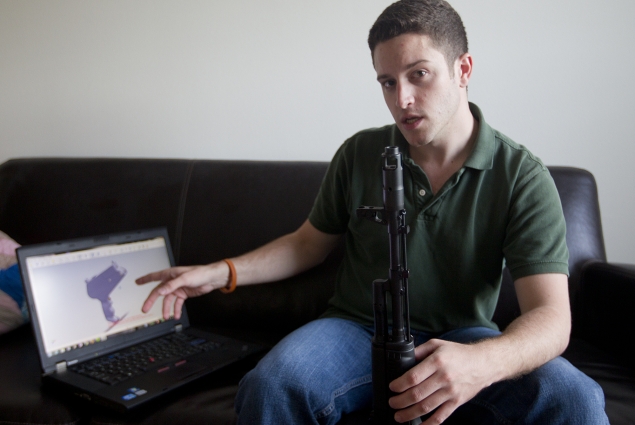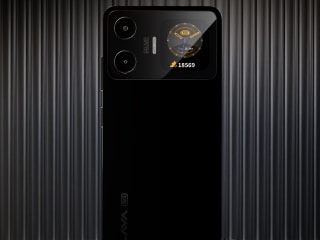- Home
- Laptops
- Laptops News
- California bill seeks to pre empt spread of undetectable 3D printed guns
California bill seeks to pre-empt spread of undetectable 3D-printed guns

A state lawmaker proposed Monday that California extend its requirement that gun buyers undergo background checks and register their weapons to anyone who assembles a firearm in their home.
The legislation by state Sen. Kevin de Leon is part of a growing effort across the country to pre-empt the spread of undetectable guns that can be made using 3D printers. His bill also would apply to anyone who buys parts that can be assembled into a gun.
De Leon said he is trying to address a twin threat from what he called "ghost guns" - plastic guns that can slip through metal detectors and unregistered weapons that can fall into the hands of people who are legally prohibited from owning firearms under state law.
"Currently, no one knows they exist until after a crime has been committed," said de Leon, a leading candidate to take over as Senate leader next year.
That was the case for John Zawahri, who assembled his own military-style assault rifle and killed five people in Santa Monica in a June rampage even after he was barred from legally buying a gun in California because of mental health issues.
The bill by De Leon, a Democrat from Los Angeles, goes further than the federal government, which last month renewed for 10 years an existing ban on plastic firearms that can evade metal detectors and X-ray machines.
His bill would allow the manufacture or assembly of homemade weapons, but require the makers to first apply to the state Department of Justice for a serial number that would be given only after the applicants undergo a background check. The number would have to be engraved on or otherwise permanently attached to the weapon within one day of its manufacture.
He plans to amend the bill to also require that the guns contain permanent pieces of metal that could be detected by X-ray machines and metal detectors, a proposal that was blocked in the federal legislation. Some plastic guns currently comply with the federal law by including a metal piece that can be removed, which potentially would allow them to be slipped through security screeners at airports, courthouses, schools and elsewhere.
The National Rifle Association did not oppose the 10-year extension of the federal plastic firearms ban. But spokeswoman Catherine Mortensen said the organization opposes any expansion of the law at either the federal or state level.
Currently available technology allows consumers to download a gun's design plans to a computer and then build it on a three-dimensional printer with no background checks or other safeguards.
Lawmakers in New Jersey and New York have introduced legislation that would ban the possession of weapons made using 3D printers, said National Conference of State Legislatures policy specialist Jon Griffin. However, while there had been talk by federal lawmakers and some state legislators of trying to restrict the posting of weapons plans on the Internet, Griffin said he knows of no such legislation being introduced and said it would likely run into free speech protections.
Nick Wilcox, representing the Brady Campaign to Prevent Gun Violence, said de Leon's bill is particularly significant because as of Jan. 1, those buying rifles and shotguns in California are required to undergo the same registration and background checks as are required of those buying handguns. California is also the only state that cross-checks five computerized databases to find people who bought firearms but are not permitted to own them.
Brian Michael Jenkins, who once served on the White House Commission on Aviation Safety and Security and as an adviser to the National Commission on Terrorism, is skeptical that new three-dimensional printing technology will lead to a flood of undetectable weapons, if only because it is simpler and cheaper to buy a traditional handgun. Moreover, new airport body scanners and X-ray machines can spot the outline of a gun even if it is made from plastic.
However, proposals like de Leon's have merit because they provide another tool to law enforcement, said Jenkins, a senior adviser to the president of the RAND Corp. think tank. De Leon's bill would make violations misdemeanors punishable with a fine of up to $1,000 and up to a year in jail for an illegal handgun, up to six months for a rifle or shotgun.
"As we come up with new types of technology, it creates new vulnerabilities," said Jenkins, who has written extensively on terrorism-related issues. "What you have then is an ongoing dynamic between bad guys and good guys."
Catch the latest from the Consumer Electronics Show on Gadgets 360, at our CES 2026 hub.
Related Stories
- Samsung Galaxy Unpacked 2025
- ChatGPT
- Redmi Note 14 Pro+
- iPhone 16
- Apple Vision Pro
- Oneplus 12
- OnePlus Nord CE 3 Lite 5G
- iPhone 13
- Xiaomi 14 Pro
- Oppo Find N3
- Tecno Spark Go (2023)
- Realme V30
- Best Phones Under 25000
- Samsung Galaxy S24 Series
- Cryptocurrency
- iQoo 12
- Samsung Galaxy S24 Ultra
- Giottus
- Samsung Galaxy Z Flip 5
- Apple 'Scary Fast'
- Housefull 5
- GoPro Hero 12 Black Review
- Invincible Season 2
- JioGlass
- HD Ready TV
- Laptop Under 50000
- Smartwatch Under 10000
- Latest Mobile Phones
- Compare Phones
- Tecno Spark Go 3
- iQOO Z11 Turbo
- OPPO A6c
- Samsung Galaxy A07 5G
- Vivo Y500i
- OnePlus Turbo 6V
- OnePlus Turbo 6
- Itel Zeno 20 Max
- Lenovo Yoga Slim 7x (2025)
- Lenovo Yoga Slim 7a
- Lenovo Idea Tab Plus
- Realme Pad 3
- Garmin Quatix 8 Pro
- NoiseFit Pro 6R
- Haier H5E Series
- Acerpure Nitro Z Series 100-inch QLED TV
- Asus ROG Ally
- Nintendo Switch Lite
- Haier 1.6 Ton 5 Star Inverter Split AC (HSU19G-MZAID5BN-INV)
- Haier 1.6 Ton 5 Star Inverter Split AC (HSU19G-MZAIM5BN-INV)

















